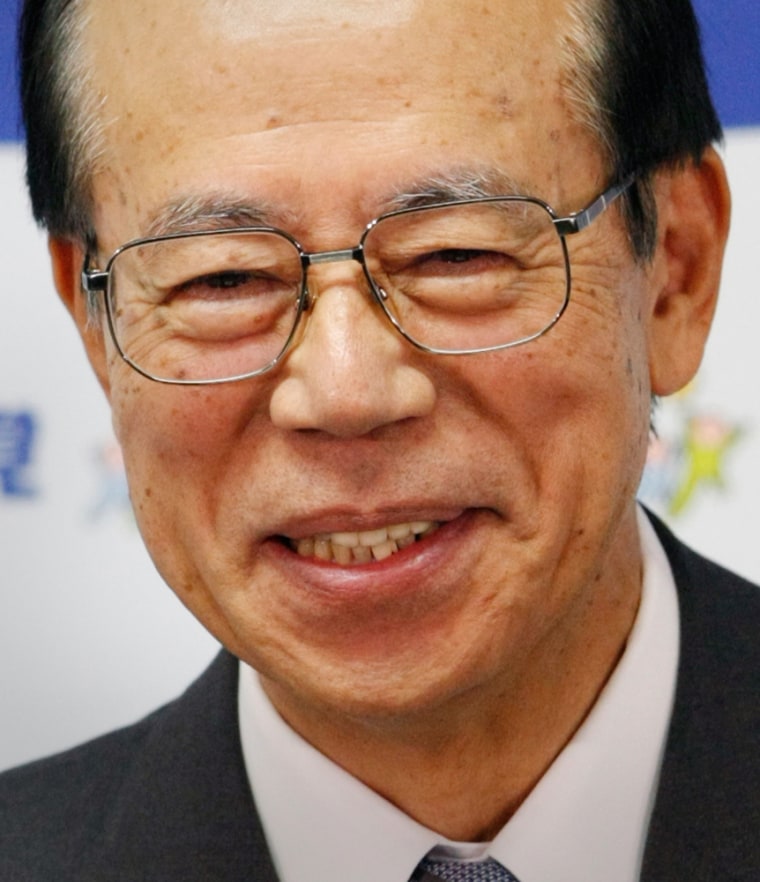The moderate veteran politician Yasuo Fukuda easily won election as president of Japan’s struggling ruling party on Sunday, assuring his selection as the new prime minister in a parliamentary vote later this week.
Fukuda won 330 votes to former Foreign Minister Taro Aso’s 197 votes, the party announced.
Fukuda, 71, the son of a prime minister from the 1970s, has vowed to keep his country in the fight against terrorism, improve relations with Asia and address inequalities in the world’s second-largest economy.
Fukuda vowed on Sunday to rebuild the popularity of the Liberal Democratic Party, which has suffered a year of scandals and policy missteps by outgoing Prime Minister Shinzo Abe, who has been hospitalized since announcing on Sept. 12 that he would resign.
“It is natural that we are facing public criticism,” Fukuda said in a joint appearance with his rival, Aso, on national broadcaster NHK. “We must make efforts patiently to regain public trust.”
Key policies
Fukuda also pushed his key policies: To further engage North Korea diplomatically, push for extension of Japan’s naval mission in support of U.S.-led forces in Afghanistan, and give aid to rural regions left behind by the economic recovery.
“We need to show our intention to continue the mission as a message to the international society,” Fukuda said of the Afghan mission, which the opposition has vowed to defeat in parliament. “If this drags on too long we might send a wrong message to the world as if we were not committed to making that contribution.”
Fukuda, who served as chief Cabinet secretary from 2000 to 2004, has the support of the major factions of the LDP. His dominance over Aso, a hawk who served as Abe’s foreign minister until August, was so clear by Sunday that morning papers had already given him the title of LDP president, and he was asked on NHK if he would choose Aso as his foreign minister.
Fukuda would inherit a political environment and LDP left in serious disarray.
Abe, 53, came into office a year ago with high support ratings and an unquestioned ruling coalition dominance in parliament.
But he quickly frittered away those advantages as his Cabinet overflowed with money scandals and he pressed ahead with a nationalist agenda while people demanded more attention to bread-and-butter issues such as pensions.
The LDP suffered a serious blow in elections in July for the upper house of parliament in which the resurgent opposition seized control of the chamber, heightening calls for snap elections for the lower house as well.
Abe's apology
Abe apologized to the party in a message read after Fukuda’s selection.
“I apologize to Aso and all LDP lawmakers, party members and the Japanese public for causing a political vacuum,” said the note.
Fukuda has arrived as an antidote to Abe. A sober, brainy party elder, Fukuda — son of a prime minister from the 1970s — has vowed to concentrate on down-to-earth issues such as economic equality and growth, while seeking warmer ties with the rest of Asia.
It was unclear, however, how long Fukuda would be able to stave off calls for lower house elections. He has termed such calls “understandable.”
Media reports said the LDP wanted to pass the Afghan measure and the national budget early next year before dissolving the lower house.
“When the public and lawmakers strongly voice a need to dissolve the parliament, I think it wouldn’t be good to resist that call,” Fukuda said on NHK.
